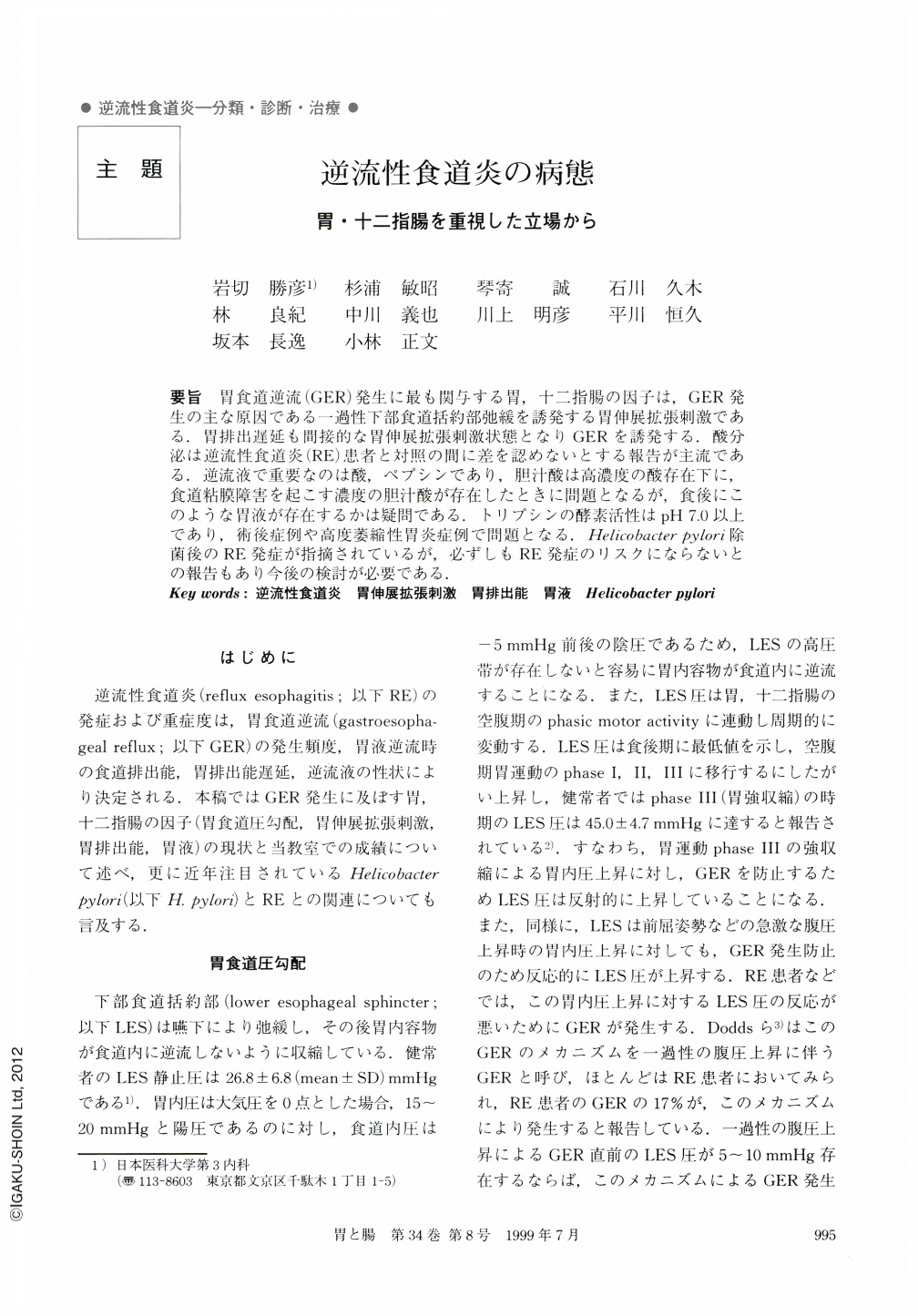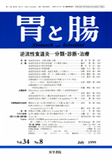Japanese
English
- 有料閲覧
- Abstract 文献概要
- 1ページ目 Look Inside
要旨 胃食道逆流(GER)発生に最も関与する胃,十二指腸の因子は,GER発生の主な原因である一過性下部食道括約部弛緩を誘発する胃伸展拡張刺激である.胃排出遅延も間接的な胃伸展拡張刺激状態となりGERを誘発する.酸分泌は逆流性食道炎(RE)患者と対照の間に差を認めないとする報告が主流である.逆流液で重要なのは酸,ペプシンであり,胆汁酸は高濃度の酸存在下に,食道粘膜障害を起こす濃度の胆汁酸が存在したときに問題となるが,食後にこのような胃液が存在するかは疑問である.トリプシンの酵素活性はpH7.0以上であり,術後症例や高度萎縮性胃炎症例で問題となる.Helicobacter pylori除菌後のRE発症が指摘されているが,必ずしもRE発症のリスクにならないとの報告もあり今後の検討が必要である.
Transient lower esophageal sphincter (LES) relaxation is the single most common mechanism underlying gastroesophageal reflux. The most important gastric factor affecting the occurrence of transient LES relaxation is gastric distention. Delayed gastric emptying also indirectly promotes gastric distention, and stimulates transient LES relaxation.
There was no difference between acid output in patients with reflux esophagitis and controls. The major factors causing esophageal damage to the esophagus appear to be acid and pepsin or, under alkaline conditions, trypsin. In addition, the presence of a high concentration of bile acids (more than 0.2 mM) under strong acidic conditions (pH 1.0) in the esophagus probably has an important potentiating influence. However, concentration of bile acids and acid is not likely to be high in the postprandial period.
It remains unclear whether a considerable proportion of patients treated for Helicobacter pylori will develop reflux esophagitis.

Copyright © 1999, Igaku-Shoin Ltd. All rights reserved.


